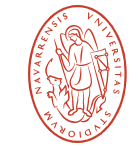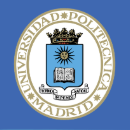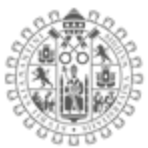Detailed introduction of Universitat Pompeu Fabra (UPF):
Introduction and Overview
Location: Located in Barcelona, Spain.
Student size: There are 20,497 students in 2025, of which 2,850 are international students, accounting for about 14%, and female students account for 60%.
History and establishment time
Founded in 1990, it is a young but rapidly developing higher education institution.
School Strength
Teaching Quality: As one of the top public universities in Spain, it offers undergraduate, master's and doctoral degree programs covering eight subject areas including health and life sciences, political and social sciences, communication, law, economics and business, engineering and information and communication technology, humanities, translation and language science.
Faculty: It has 751 faculty members, of which 29% are international faculty members , the high-quality faculty provides strong support for teaching and scientific research.
Research strength: It conducts cutting-edge research in multiple disciplines, actively participates in international cooperation and exchanges, and its research results have had a wide impact in academia and society. It is a member of the European Research University Alliance.
Institutional nature
Public university.
Educational philosophy
With the concept of "questioning, advancing, and changing", it is committed to creating, disseminating and transforming new multidisciplinary knowledge, cultivating students' ability to cope with future challenges, guiding policy implementation, stimulating leadership, and promoting social development.
Key laboratories and disciplines
Key disciplines:
Politics and social sciences: The education and research results in professional fields such as political science, sociology, and psychology are remarkable, and some majors are ranked at the forefront of the world. For example, the political science major is in the top 150 in the 2022 ARWU ranking and ranks first in Spain.
Economics and business: The economics major ranks 26th in the QS 2023 ranking, first in Spain; its business school's teaching and research are well-known in Europe and have cultivated many outstanding economic and business talents.
Communication: The Communication and Media Studies major is ranked in the top 150 in the QS 2023 ranking, second in Spain. It focuses on combining theory with practice and cultivates students' professional capabilities in new media, advertising, public relations and other fields.
Law: The Law major ranks 85th in the THE 2023 ranking, first in Spain. It has a comprehensive curriculum and high teaching quality, providing students with a solid legal theory foundation and practical opportunities.
Health and Life Sciences: It has outstanding research and teaching performance in biomedicine, public health, neuroscience and other fields. For example, its public health major ranks first in Spain in the 2022 ARWU ranking.
Key laboratories: It has a number of advanced scientific research laboratories, such as the Biomedical Research Center, the Social Science Experimental Center, the Information and Communication Technology Laboratory, etc., which provide a good platform for scientific research in related disciplines and promote the development and innovation of disciplines.
Department Settings
The school has several departments, including the Department of Health and Life Sciences, the Department of Political and Social Sciences, the Department of Communication, the Department of Law, the Department of Economics and Business, the Department of Engineering and ICT, the Department of Humanities, the Department of Translation and Language Sciences, etc. Each department has different majors and research directions.
Ranking
2025 QS World University Rankings: 265th.
2024 THE World University Rankings: 176th.
2023 THE Young University Rankings: 1st in Spain and 18th in the world.
Expenses
Tuition fees: Tuition fees are the same for local and foreign students, starting from US$1,263 per year for undergraduates, US$1,892 per year for masters, and US$421 per year for doctoral students. Please note that tuition fees for different majors may vary.
Living expenses: The cost of living in Barcelona is relatively high, including accommodation, food, transportation, etc., which costs about 800-1200 euros per month.
Campus Environment
Campus Distribution: It has three campuses located in different areas of Barcelona, providing students with a diverse learning and living environment.
Facilities and Atmosphere: The campus facilities are modern, equipped with advanced teaching equipment and scientific research facilities, rich library resources, gymnasiums, student activity centers, etc., which provide convenience for students' extracurricular life. The campus has diverse culture and a high proportion of international students, creating an international learning and exchange atmosphere.
-

University of Navarra
-

Autonomous University of Madrid
-

Polytechnic University of Catalonia
-

CEU University of San Pablo
-

Technical University of Madrid
-

University of Lleida
-

University of Barcelona
-

University of Oviedo
-

University of Valladolid
-

University of Salamanca
-

Mesoamerican University
-

Istmo University
-

Mariano Galvez University of Guatemala
-

Regional University of Guatemala
-

Galileo University
-

Francisco Marroquín University
-

Rafael Landívar University
-

University of the Valley of Guatemala
-

University of San Carlos of Guatemala
-

Technological Institute of Tlaxcala Plateau
-

Golfo University
-

Technological University of South Sonora
-

Technological University of Huejotzingo
-

Tizimín Institute of Technology
-

Chilpancingo Institute of Technology

